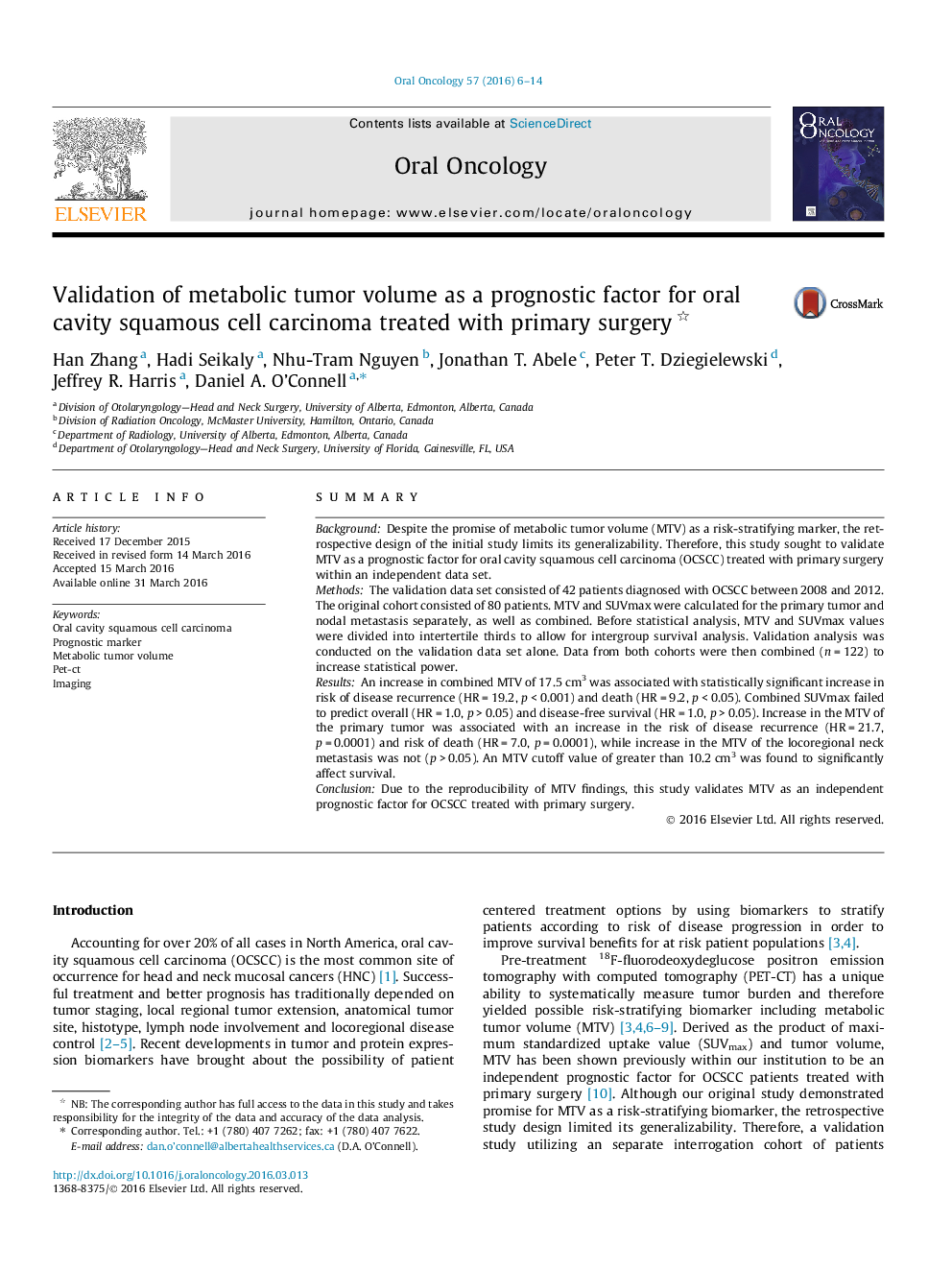| Article ID | Journal | Published Year | Pages | File Type |
|---|---|---|---|---|
| 3163741 | Oral Oncology | 2016 | 9 Pages |
•Higher metabolic tumor volumes (MTV) are linked to increased recurrence rates in oral cavity SCC.•Higher MTV are linked to reduced survival rates in oral cavity SCC.•Assessment of reproducibility of MTV as a prognostic marker in oral cavity SCC.•Findings validate MTV as a prognostic marker in oral cavity SCC.•A MTV cutoff value of greater than 10.2 cm3 significantly affects survival.
SummaryBackgroundDespite the promise of metabolic tumor volume (MTV) as a risk-stratifying marker, the retrospective design of the initial study limits its generalizability. Therefore, this study sought to validate MTV as a prognostic factor for oral cavity squamous cell carcinoma (OCSCC) treated with primary surgery within an independent data set.MethodsThe validation data set consisted of 42 patients diagnosed with OCSCC between 2008 and 2012. The original cohort consisted of 80 patients. MTV and SUVmax were calculated for the primary tumor and nodal metastasis separately, as well as combined. Before statistical analysis, MTV and SUVmax values were divided into intertertile thirds to allow for intergroup survival analysis. Validation analysis was conducted on the validation data set alone. Data from both cohorts were then combined (n = 122) to increase statistical power.ResultsAn increase in combined MTV of 17.5 cm3 was associated with statistically significant increase in risk of disease recurrence (HR = 19.2, p < 0.001) and death (HR = 9.2, p < 0.05). Combined SUVmax failed to predict overall (HR = 1.0, p > 0.05) and disease-free survival (HR = 1.0, p > 0.05). Increase in the MTV of the primary tumor was associated with an increase in the risk of disease recurrence (HR = 21.7, p = 0.0001) and risk of death (HR = 7.0, p = 0.0001), while increase in the MTV of the locoregional neck metastasis was not (p > 0.05). An MTV cutoff value of greater than 10.2 cm3 was found to significantly affect survival.ConclusionDue to the reproducibility of MTV findings, this study validates MTV as an independent prognostic factor for OCSCC treated with primary surgery.
